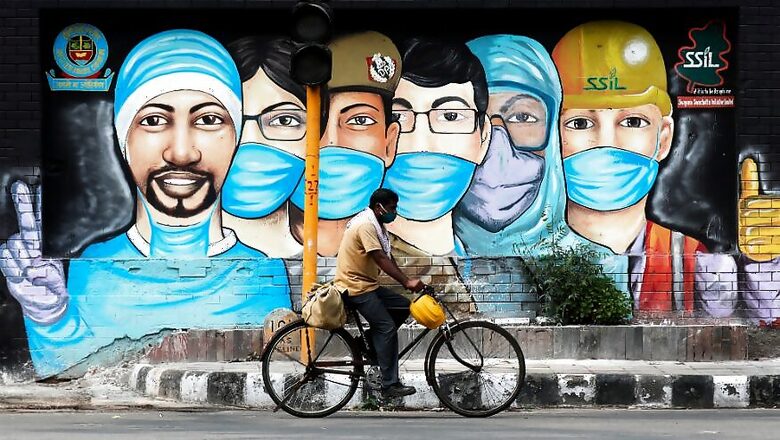
views
In the first indication of a widespread transmission of Covid-19 in the national capital, the results of sero-prevalence study showed that on an average, across Delhi, antibodies were found in 23.48% of the population. In other words, the study estimated that 23.48% of the Capital’s population was affected by Covid-19 and many of them would not have even known it as they did not show any symptoms.
“The study also indicates that a large number of infected persons remain asymptomatic,” a press note of the Union Health Ministry said. A total of 21,387 samples were collected for the survey.
“Nearly six months into the epidemic, only 23.48% of the people are affected in Delhi, which has several pockets of dense population,” the ministry said in its release. The sero-prevalence study in Delhi was carried out by Delhi government, National Centre for Disease Control (NCDC) and Ministry of Home Affairs.
Earlier, the Indian Council of Medical Research (ICMR) and NCDC had carried out a similar survey across non-containment zones in 83 districts. Out of them, data of 65 districts showed that 0.73 per cent of the population surveyed were exposed to coronavirus. Recently, the government also said a nationwide sero-survey is in the works.
Epidemiologists cautioned that the results of the survey should not be interpreted hurriedly in the absence of the complete data, especially with regards to absolute numbers of infection in the population. “The virus has been in circulation for less than six months in the Capital. The spread must not have been uniform. Some parts of the state might still be far less affected than others. Since this is an average of the infection’s prevalence, we need to also see the range,” said Dr Iype Joseph, Epidemiologist, Rajiv Gandhi Centre for Biotechnology, Trivandrum.
The sero-prevalence study was done between June 27 and July 10 in all 11 districts of Delhi for representation of a fair sample size. As part of such a survey, blood samples are collected from people with written informed consent and then their sera is tested for IgG antibodies and infection using ELISA test kits.
Elisa antibody tests only confirm the presence of antibodies and are not used for confirming the presence of infection.




















Comments
0 comment